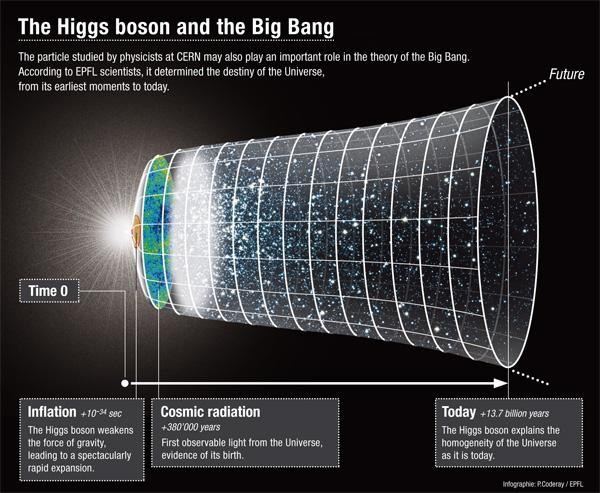CERN Higgs boson News: Glimpse of 'God Particle' but No Discovery Yet

Scientists at at the CERN particle physics laboratory outside Geneva have found signs of the Higgs boson, but stopped short of claiming a full discovery of the so-called 'God particle'.
The leaders of the two teams of researchers, ATLAS and CMS, revealed their findings on Tuesday to a packed seminar at CERN, where they have been trying to find the elusive particle using the £6.2 billion Large Hadron Collider (LHC) built to recreate conditions a fraction of a second after the Big Bang.
The researchers were keen to stress they were not making an announcement saying that the particle definitely exists, but that the new data is strong enough to suggest the question will be answered next year, one way or another.
Physicist Fabiola Gianotti, head of the ATLAS team, said the particle is more likely to be found in lower mass or energy ranges, a discovery they only made recently. This means that the search for the "God particle" has now been narrowed down to a signal centred at around 126 GeV (Giga electron volts).
"I think it would be extremely kind of the Higgs boson to be here, but it is too early," Professor Gianotti said during the seminar.
"More studies and more data are needed. The next few months will be very exciting... I don't know what the conclusions will be."
The results showed a spike in the graph taken by the ATLAS and CMS teams, where the apparent Higgs boson began to decay after temporarily existing when the LHC smashed particles together.
Oliver Buchmueller, a senior physicist on the CMS team, said: "We see a small bump around the same mass as the Atlas team and that is intriguing. It means we have two experiments seeing the same thing and that is exactly how we would expect a Higgs signal to build up."
Speaking at the end of the seminar, CERN director Rolf Heuer summed up the findings by saying: "These are preliminary results, we're talking small numbers and remember that we are running [the LHC] next year.
"The window for the Higgs mass gets smaller and smaller, but it is still alive. We have not found it yet. Stay tuned for next year.
"But be careful - it's intriguing hints," he said. "We have not found it yet, we have not excluded it yet."
If CERN discovers that the Higgs boson does not exist after all, physicists will have to undertake a massive rethink of how the universe works and how particles obtain their mass after spending decades searching for this elementary particle.
The Higgs boson is named after particle physicist Peter Higgs, who proposed the idea in 1964.
© Copyright IBTimes 2025. All rights reserved.






















